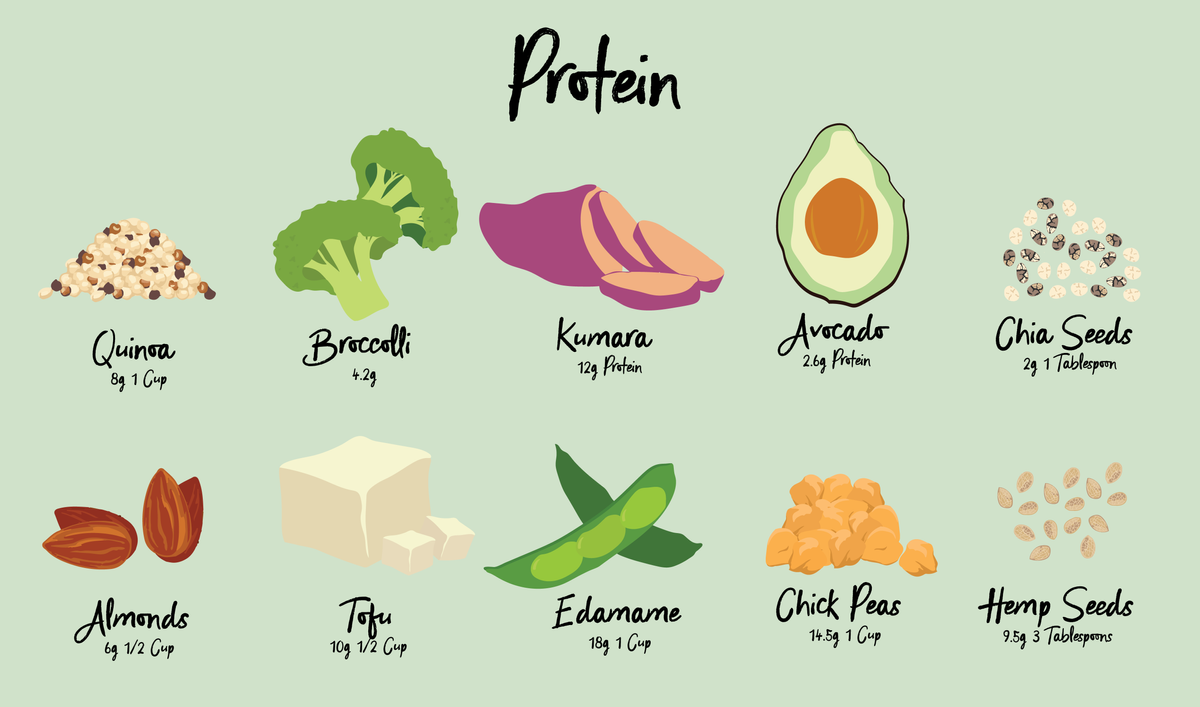
蛋白质是构成人体的基本组成部分,由氨基酸构成。人体利用大约20种不同的氨基酸来支持身体的正常功能,如建立、修复和维护身体结构。其中有九种是必需氨基酸,这意味着我们需要通过饮食获取它们,因为人体无法自行合成。
在获得蛋白质方面,我们有两个主要来源:植物和动物。
动物蛋白质拥有全部必需氨基酸,这使它们备受青睐。然而,它们也存在一些不利因素。通常它们缺乏纤维,这对健康的消化系统至关重要。此外,它们可能促进体内炎症,增加患心脏病的风险。它们也对身体激素产生干扰,可能增加患癌症的风险。此外,即使是瘦肉,通常也富含饱和脂肪和胆固醇。
虽然大多数植物蛋白质是不完整的(它们缺少至少一种必需氨基酸),但是当我们将不同的植物食品,如全谷物、豆类、坚果和种子融入在我们的日常饮食中,我们就能轻松将其补充完整。所以说只要你摄取各种不同种类的植物食品,就可以确保摄入充足的蛋白质。研究表明,来自混合植物食品的总蛋白质与来自动物来源的蛋白质相当。
有些人担心植物食品中的植物抗营养物质,如植物酸、凝集素和草酸,可能降低重要营养素的吸收。然而,实际上,只有在食用大量淀粉类食物而几乎不摄取其他食物时,这些所谓的抗营养物质才可能引发问题。如果你的饮食多样化,这些抗营养物质通常并不成问题。此外,它们通常具有抗氧化性质,对健康有益。植物蛋白质可能需要更长时间来消化,但它们富含纤维和植物营养素,对整体健康非常有益。高纤维饮食与降低癌症和心脏病风险有很大的关联。
有趣的是,研究表明,遵循以植物为主的饮食的人更不容易患上严重疾病,如心脏病、癌症、中风和糖尿病。甚至有一项实验研究发现,当实验室老鼠摄取更多植物蛋白质和较少动物制品时,肿瘤生长明显减缓。
因此,在谈到蛋白质时,不仅要注重数量,还要关注它所携带的其他好处。选择更多的植物来源,并巧妙平衡不同植物的摄入将为你的健康增色不少。
Proteins are like building blocks for our body, and they're made up of smaller units called amino acids. We use about 20 different amino acids to keep our body in good shape. Some of these amino acids, nine to be exact, are essential, which means we need to get them from the food we eat because our body can't make them on its own.
Now, when it comes to getting protein, we have two main sources: plants and animals.
Animal proteins are pretty cool because they contain all the essential amino acids. However, they have some downsides. They often lack fiber, which is essential for a healthy digestive system. Also, they can promote inflammation in our bodies, which increases the risk of heart disease. They mess with our hormones, which can up the risk of cancer. And to top it off, they usually come with a lot of saturated fat and cholesterol, even if it's lean meat.
On the other hand, most plant proteins are incomplete, meaning they don't have all nine essential amino acids. But don't worry, you can easily make them complete by mixing different plant foods like whole grains, legumes (like beans and lentils), nuts, and seeds in your meals. As long as you eat a variety of plant foods, you're good to go. In fact, research shows that the overall protein from a mix of plant foods is pretty similar to what you'd get from animal sources.
Now, some folks worry that plant foods have things like phytates, lectins, and oxalates that can mess with the absorption of important nutrients. But in reality, these substances only cause problems if you're eating a ton of starchy foods and not much else. If you're enjoying a diverse diet, these so-called anti-nutrients aren't a big deal. Plus, they often have antioxidant properties that are good for your health. Plant proteins may take a bit longer to digest, but they come with the bonus of fiber and phytonutrients that are fantastic for your overall well-being. High-fiber diets are linked to a lower risk of cancer and heart disease.
And here's the exciting part: Research suggests that people who follow a plant-based diet are less likely to get serious illnesses like heart disease, cancer, stroke, and type-2 diabetes. There's even a study with lab rats that found tumors grew less when they ate more plant protein and fewer animal products.
So, when it comes to protein, think about the whole package. It's not just about the quantity but also what other benefits it brings along. Choosing more plant-based sources and balancing things out can be a smart move for your health.




